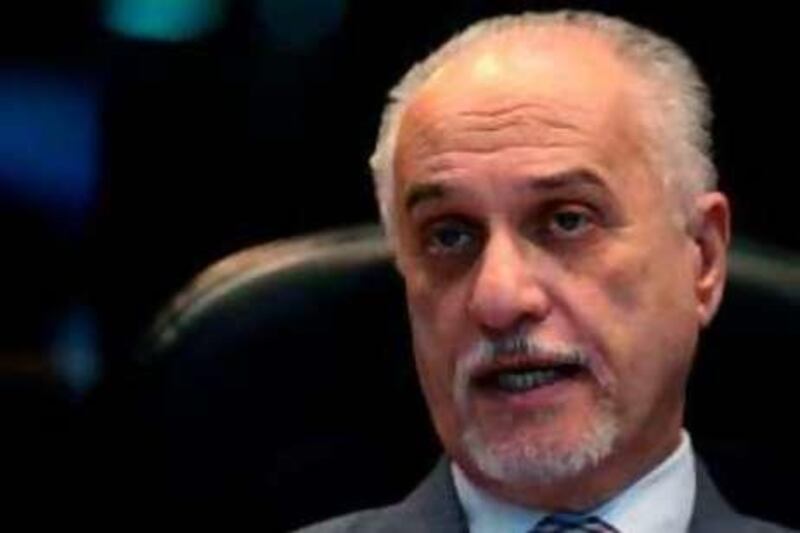Amid continuing oil market turmoil and uncertainty over its stalled federal oil law, Iraq has finalised a deal with China to develop its al Ahdab oil field. The agreement, originally announced in August by the Iraqi oil minister Hussein al Shahristani during an official visit to Beijing, is Iraq's first major oil-development contract with a foreign company since the former dictator Saddam Hussein was ousted in 2003. According to information published on the website of the Iraqi president Jalal Talabani's Patriotic Union of Kurdistan (PUK) party, the heads of Iraq's State Oil Export Company and al Waha Chinese Company on Monday signed a 20-year non-renewable contract valued at US$3.5 billion (Dh12.8bn) to develop the oil field - putting the project's price-tag $500 million higher than previously estimated. The deal replaces a cancelled agreement between the state-owned China National Petroleum Corporation (CNPC) and Hussein's regime to develop the al Ahdab field, which was discovered in 1979, contains about 225 million barrels of reserves, and could potentially produce 90,000 barrels per day of crude, according to an Iraqi government estimate. But under the deal announced in August, CNCP would work for a fee instead of being entitled to a share of oil-production profits. The PUK website said the development would help Iraq's al Zubaidiya power station supply much-needed electricity to half of the country's provinces. Samuel Ciszuk, the Middle East energy analyst for consulting firm IHS Global Insight, said the al Ahdab project was likely to move ahead quickly. The contract's terms were believed to include clauses requiring the Chinese company to have staff in place and begin work within two months of signing, and others severely limiting the circumstances in which it could halt work due to security threats, he said. In the absence of a new federal oil law that would clarify the terms under which foreign companies may participate in Iraqi oil and gas projects, Mr Shahristani has avoided offering politically controversial deals that would entitle them to any significant profits from oil-production. However, that approach has contributed to long delays in reaching deals with western companies to refurbish the country's oil sector. Most recently, Mr Shahristani has proposed hybrid deals that would offer foreign companies a share in oil profits after certain targets have been reached, in addition to a basic fee for services. But in doing so, he has attracted a storm of protest from Iraq's oil unions and other political factions that favour nationalising the country's oil industry, further bogging down negotiations over the federal oil law. The most recent draft was already bitterly opposed by the government of northern Iraq's autonomous Kurdistan region, on grounds that it would put too much of the country's oil resources under Baghdad's control. tcarlisle@thenational.ae
Iraq signs first major post-Saddam oil deal
Iraq and China have finalised a deal to develop the Gulf country's al Ahdab oil field.

More from the national




